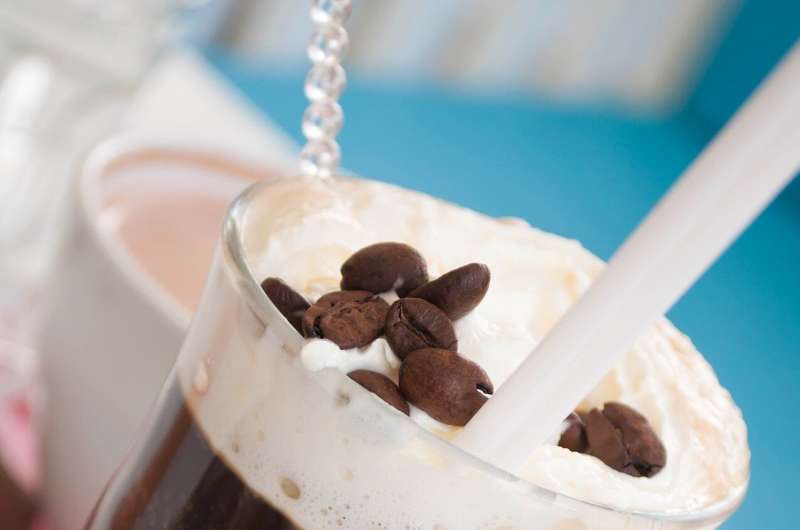This article has been reviewed according to Science X's editorial process and policies. Editors have highlighted the following attributes while ensuring the content's credibility:
fact-checked
peer-reviewed publication
trusted source
proofread
A (brief) surprise in study of alcohol, caffeine and sleep

The first known study to look at the combined real-world effects of alcohol and caffeine on nightly sleep quality and quantity came up with an unexpected finding—at first.
Researchers at the University of Washington School of Medicine's Center for the Study of Health and Risk Behaviors and the University of California, Berkeley's Center for Human Sleep Science hypothesized that combined consumption of the two most popular psychoactive drugs in the world would degrade how well we sleep and for how long. The assumption was based on decades of study of alcohol and caffeine independently. But a small cohort of financial traders who regularly consume alcohol and caffeine reported unexpected results.
"Compared to the nights when you might have one or the other, we thought we were going to see additional decline in subjective sleep quality or sleep duration," said Frank Song, a researcher and fourth-year clinical psychology doctoral candidate in the UW Department of Psychiatry and Behavioral Sciences. "But actually, that interaction effect was the opposite of what we expected and ended up having an effect of offsetting each other's negative impact on quality or quantity. And this was very intriguing to us."
Alcohol and caffeine's interactive effects revealed themselves over the length of the six-week micro-longitudinal study. Song said some participants even showed signs of cyclical self-medicating with the effects of one drug being used to overcome the use of the other.
"It's a very, very nice thought, I think, in many people's minds that you could just use caffeine to wipe off the hangover," Song said. "But what we find is that while there may be greater alertness in the short term, it creates a sleep-state misperception contributing to continued use despite negative effects on sleep."
The research appears in the journal PLOS ONE. Researchers found that 90% of adults have at least one caffeinated drink a week, while 74% of people 15 and over regularly have a drink containing alcohol.
"The global estimate is that for all persons aged 16 or older, the average alcohol consumption is 6.4 liters annually," Song said.
Song, lead author on the study, chose to focus on financial traders because of the need for high attention and cognitive speed in their profession and known regularity of caffeine and alcohol use to mitigate the stress from work. Song himself was an investment analyst, working closely with financial traders, before turning to his doctoral studies in clinical psychology.
The group of 17 logged their daily drink consumption and sleep quality and quantity observations. The first two hypotheses they tested—how caffeine and alcohol worked independently—came back with unsurprising results. Caffeine reduced sleep quantity by 10 minutes per cup consumed the previous day on average. Similarly, those who drank alcohol the day before reported a 4% decline in their subjective sleep quality per drink on average. Song considers both impacts significant.
The research group expected those negative impacts to continue when the two were combined in a pattern of daytime caffeine and nighttime alcohol use. They got the results they expected—eventually.
"Over time, it turns into a cycle of self-medication, as some may call it, in the real world where people will experience bad sleep as a result of alcohol-induced REM sleep suppression," Song said.
"And they will try to mitigate that with caffeine use in the daytime. What we find is that despite caffeine leading to an objective reduction in sleep quantity, individuals did not perceive a reduction in sleep quality, suggesting a mismatch in perception that may contribute to continued alcohol and caffeine use despite negative effects on sleep. That can lead to a deleterious interaction and ultimately ends up being a negative cycle for their sleep."
More information: Frank Song et al, Sleep, alcohol, and caffeine in financial traders, PLOS ONE (2023). DOI: 10.1371/journal.pone.0291675




















